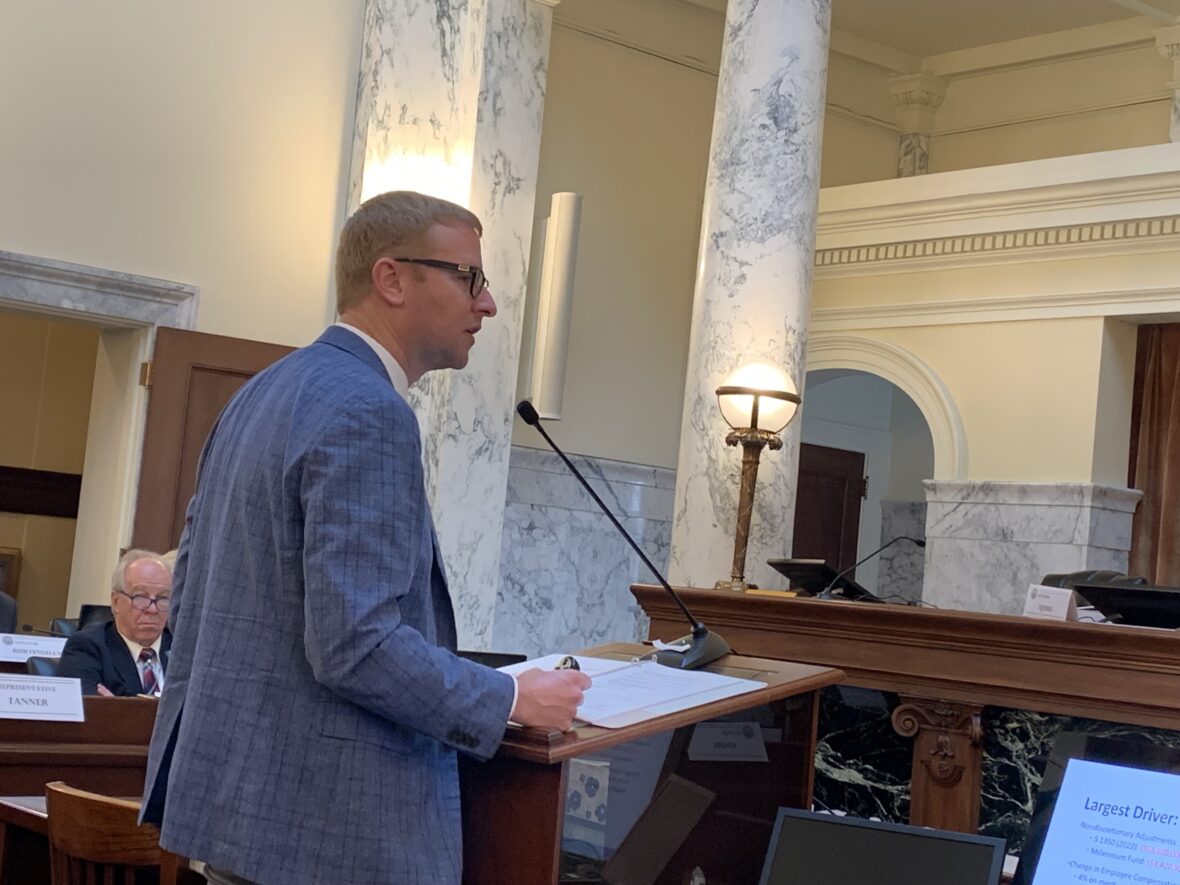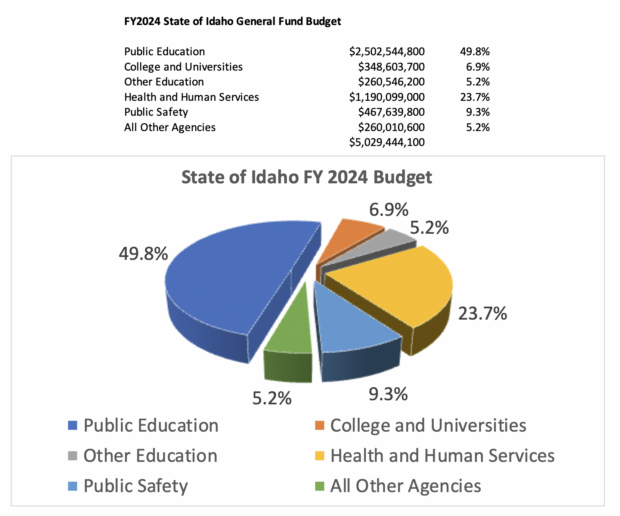
(UPDATED, 10:05 a.m. Friday, to correct gap between state and overall spending on classified staff salaries.)
Legislative budget-writers took a first cursory look Tuesday at Gov. Brad Little’s spending plan — and his public education emphasis.
Meeting for the first time this session, the Joint Finance-Appropriations Committee had only a handful of questions for Alex Adams, the governor’s budget chief. But Tuesday morning’s meeting represents only the first step in a long process that ultimately will affect teacher salaries, student scholarships and grants to defray out-of-pocket education costs.
In the next three months, JFAC will be charged with writing budgets for all state agencies, from colleges and universities to prisons, and will write a battery of spending bills for K-12.
Little on Monday laid out his budget plan — which he dubbed “Idaho First.” It spells out Little’s plan for $410 million in ongoing education spending, approved during a one-day legislative session in September.

Adams laid out the $410 million spending plan in detail Tuesday.
- Teacher pay raises: $145.6 million. This includes a plan to boost starting teacher pay to $47,477 per year. Idaho’s starting teacher pay ranked No. 41 in the nation when Little took office in 2019; in 2020-21, Idaho ranked No. 29 nationally, according to the National Education Association.
- Classified staff pay: $97.4 million. This is designed to cover the gap between what the state now covers for classified staff, and the salaries districts actually pay. Classified employees — such as bus drivers, custodians, cafeteria staff and teaching paraprofessionals — are also in line for a 4% pay raise.
- Student scholarships: $80 million. An expanded “Idaho Launch” scholarship program would provide a one-time, $8,500 award to all high school graduates, starting in 2024. Graduates could use the money to pursue a two- or four-year degree, attend a career-technical program, or take work force training.
- Discretionary funding: $52.4 million. This would give local school administrators money they can use as they wish — such as staff hires, pay raises or building maintenance.
- Empowering Parents grants: $30 million. This would make permanent a grant program currently bankrolled by federal coronavirus aid. The state is now distributing a $50 million round of grants, which parents can use to pay for computers and Internet access, textbooks and learning materials, or counseling and tutoring. The grants have been popular, but some parents have complained about delays in the process.
- Dyslexia support: $2.9 million. This line item would support a new state plan for helping students with dyslexia, a reading disorder affecting about one of every five children. The 2022 Legislature passed the dyslexia plan.
- Idaho Digital Learning Alliance: The state-sponsored online school would receive $1.7 million.
Adams fielded only one education-related budget question Tuesday. Rep. Wendy Horman, an Idaho Falls Republican and JFAC’s House co-chair, wanted more of a breakdown on the $97.4 million classified staff pay proposal.
This translates to about a 60% state spending increase, but not necessarily a 60% raise for classified workers, Adams said. In many cases, the state’s money would simply replace money spent at the local level.
While JFAC’s meeting was low-key, one conservative budget-writer took to Twitter Monday to blast one of Little’s education proposals.
“Someone explain to me how giving every student graduating from high school an $8,500 free scholarship isn’t socialism?” said Sen. Scott Herndon, R-Sagle.
Herndon, a JFAC and Senate Education Committee member, asked no questions of Adams Tuesday.
JFAC will dive deeper into education budgets in two weeks. The third week of the session is widely known as “Education Week” at the Legislature. New state superintendent Debbie Critchfield will make her first budget presentation before JFAC on Jan. 25. The state’s college and university presidents will appear before the committee the rest of the week.
